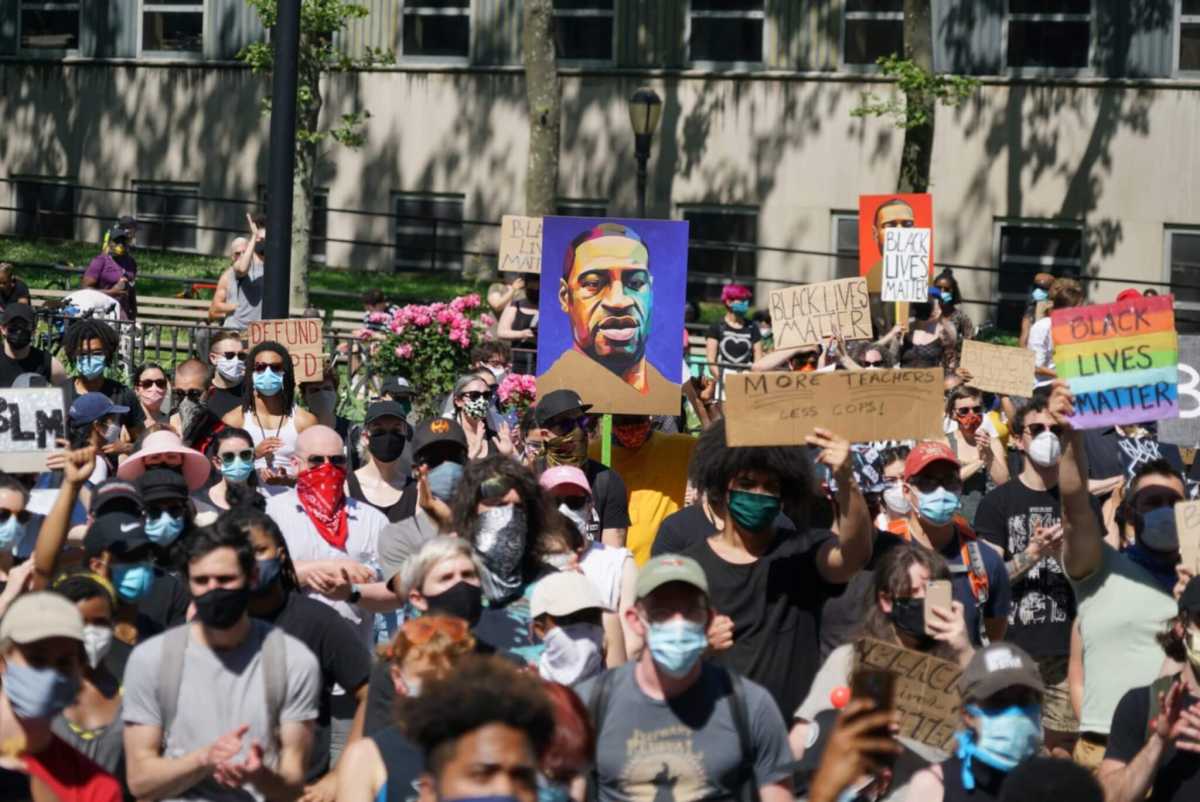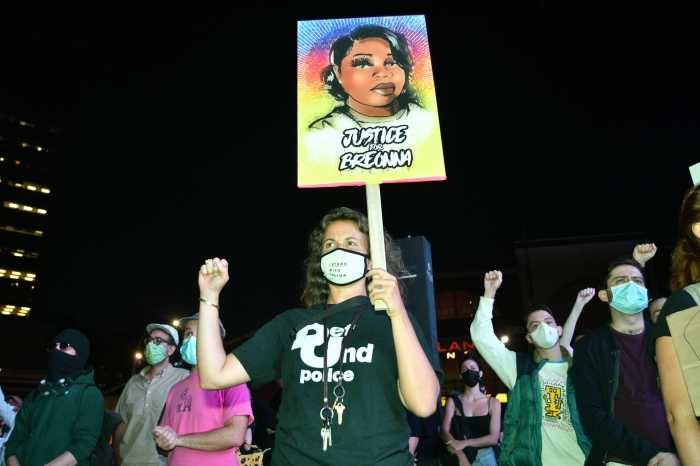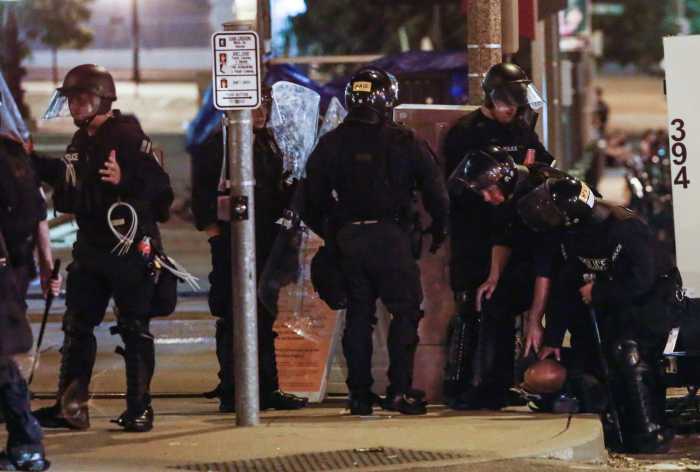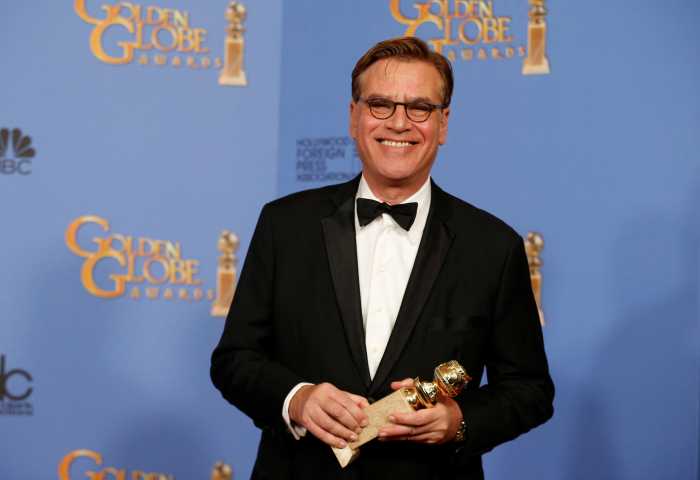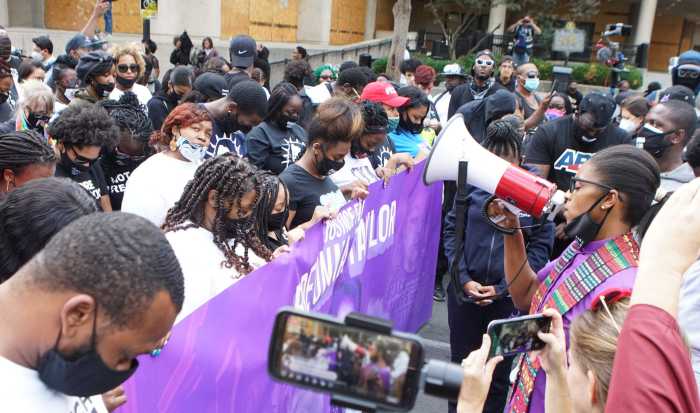The NYPD’s ready to respond to any demonstrations that may occur following the verdict in the trial of Derek Chauvin, Mayor Bill de Blasio and NYPD Chief of Department Rodney Harrison said Tuesday morning.
Jury deliberations were in progress the morning of April 20 in the criminal case of Chauvin, the disgraced Minneapolis police officer accused of murdering George Floyd. The verdict was reached in the afternoon, and will be announced at about 4:30 p.m. Eastern time.
Chauvin was recorded last May, in a viral video, holding his knee on Floyd’s neck for 8 minutes, 46 seconds during a traffic stop; Floyd later died of injuries sustained in the encounter.
Floyd’s death, and the shocking nature of the video, set off a wave of protests and demonstrations against racial injustice and police brutality across the country, and in New York. While the vast majority of the participants were peaceful, others used the unrest as cover to loot businesses and attack police officers. The demonstrations also included episodes in which NYPD officers went over the line and used excessive force against protesters and journalists.
It’s expected that a new round of protests will take place, regardless of the outcome, not longer after the Chauvin verdict is announced.
But as the city and nation held their breath waiting on the verdict Tuesday morning, de Blasio and Harrison stressed that New York is ready to respond to any protests — with the hope they will be peaceful and non-violent.
“I hope and pray that justice is served, and if people come out to, in any way, express themselves, that they realize the power of peaceful protest,” de Blasio said. “And we’ll be ready to support peaceful protest.”
Harrison said the NYPD has been preparing for possible post-trial protests over the last month, and that the department is taking an “all hands on deck” approach. Still, the department also has changed its strategies based on last spring’s protests, and recommendations outlined in the Department of Investigation’s report last December about the NYPD’s protest response.
“All police officers are ready to go with the press of a button,” Harrison said. “We’ve taken a look at some of the issues we had to deal with in 2020, some of the looting and rioting, and we’ve learned from it. But we also have other things that we learned from the DOI report regarding peaceful protest. We have some good strategies in place.”
The Mayor’s office announced some of those strategies later on Tuesday, including the following:
- Designating representatives from NYPD Community Affairs as key liaisons on the ground at protests
- Improved access for legal observers
- Better collaboration and coordination with protest organizers, clergy, and community members before and during protests
- Staging specialized units away from demonstrations to reduce the potential for escalation
- Configuring police barricades as to not unreasonably restrict movement
- Ensuring that feedback from community staff on the ground at protests is incorporated into official guidance and training for officers
Harrison said the NYPD hasn’t ordered any dramatic changes to its operations at the moment, such as ordering 12-hour tours or prohibiting officers from taking days off.
“But if that’s something we need to implement, we will do that as well,” he added. “We are prepared to protect this city.”



